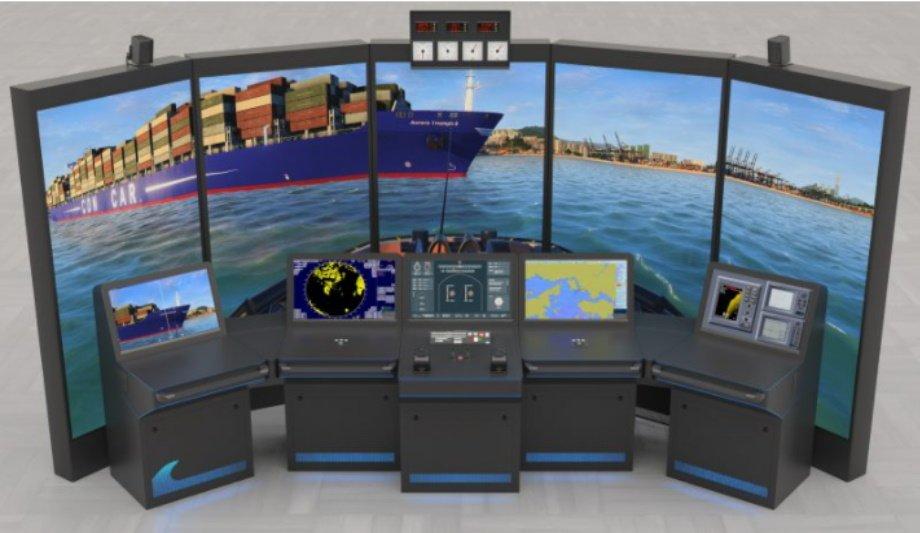NAUTIS Simulators will take the maritime training suite a step further in 2021 by introducing autodidactic tools to aid in maritime training.
Maritime training methodologies have been evolving radically over the past couple of years and the reliance on autodidactic or self-training techniques has gained substantial admiration.
NAUTIS team at VSTEP is collaborating with Smart-Ship, a Delft-based start-up that specialises in Haptic Feedback technology
Hence, the NAUTIS team at VSTEP is currently busy collaborating with Smart-Ship, a Delft-based start-up that specialises in Haptic Feedback technology, to integrate haptics with NAUTIS maritime simulators. This integration will assist nautical students with their self-learning process.
Touch-based feedback
Haptic Feedback is an advanced technology that allows the user to receive tactile information by sending out various touch-based feedback. This technology is utilised by a vast range of industries ranging from gaming to medical to education and simulation.
The usage of Haptic Feedback is even more prevalent in the modern automotive industry, guiding drivers in the form of vibration feedbacks when for example the driver pushes the accelerator or breaks too hard, or turns the steering wheel suddenly with excess strength.
Training with NAUTIS simulators
Maritime students and trainees undergoing training with NAUTIS Simulators will also be able to train with the help of haptics, which would reduce the need for an instructor.
This will guide them through their navigation journey by providing direction & input in the form of a telegraph, helm guidance assistance, vibrations, sounds, or light.
Advantages of Haptic feedback
1) Automated learning
The advanced force-feedback system warns operators if their decisions may result in high-risk situations
Haptic Feedback controls guide its users on how to maneuver different types of vessels.
Moreover, the advanced force-feedback system warns operators if their decisions may result in high-risk situations. This reduces dependency on instructors, making it cost-effective and repeatable.
2) Replay scenarios
The levers log all instructor and trainee input which allows for seamless replays of scenarios to increase the effectiveness in learning.
The software also enables ‘rewind’ to review and redo the exercises and assess the possible consequences.
3) Customisable & remotely controllable
Haptic Feedback control can be integrated and used with all kinds of navigational simulators.
Furthermore, the solution can be operated remotely which enables safe-distance training and limits unnecessary traveling.
Minimises risk of accidents
The merit of Haptic Feedback goes beyond training and can also be incorporated in actual vessels to guide sailors through their voyage.
The technology has the potential to minimise risks and reduce chances of accidents as it can render guidance to captains during their sailing by providing tactile feedback when they make a wrong move or are too close to shore.










